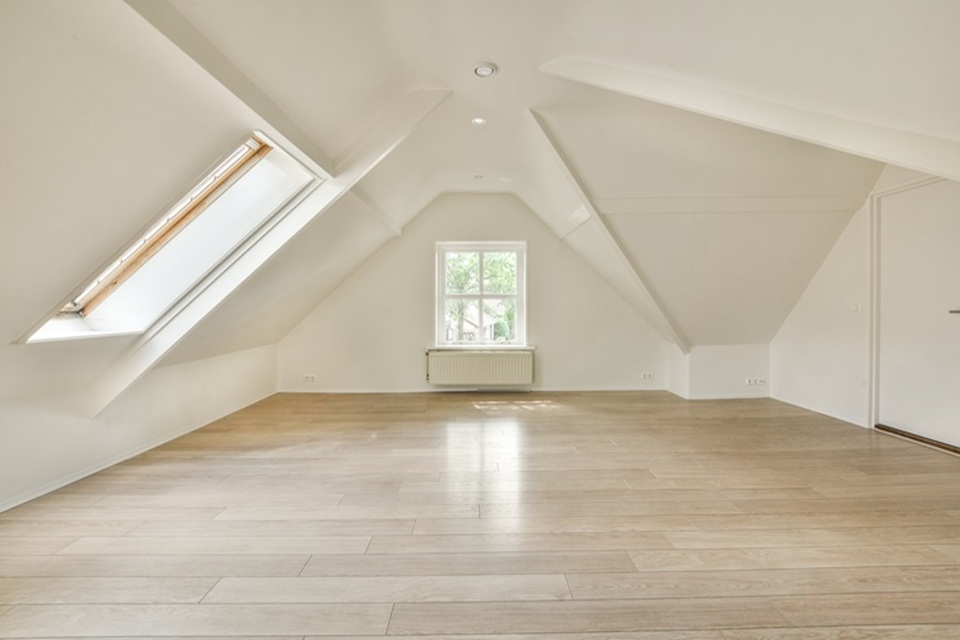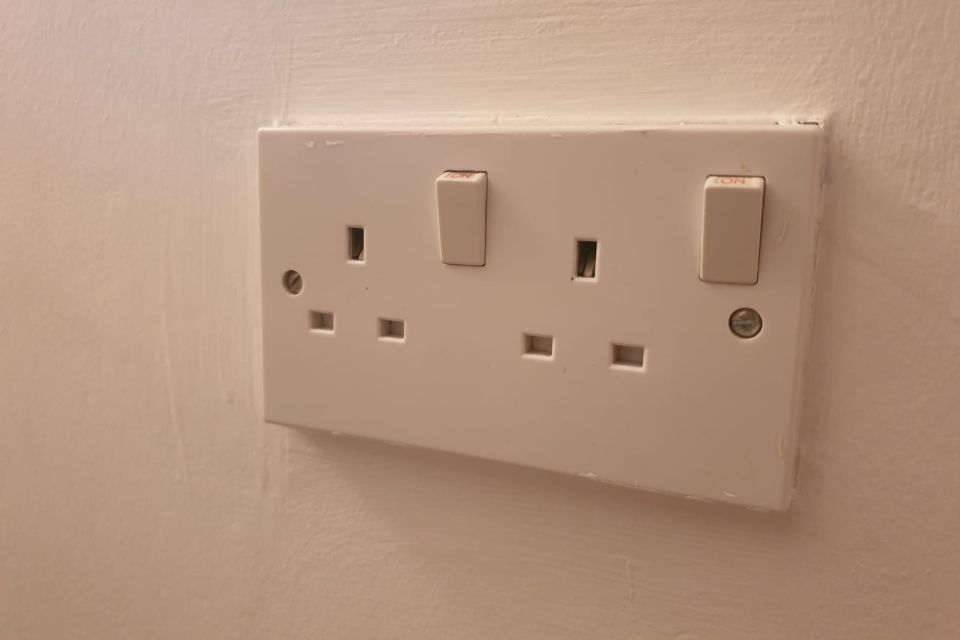How Much Does It Cost to Rewire a House in 2024?
If you've been curious about the cost of rewiring a house, look no further. We provide a detailed breakdown of the cost of rewiring a house, including electrician charges and other electrical rewiring jobs.
Let's take a look at the costs...
The average cost to rewire a house depends on the type of property you have and its condition.
Older properties may need to be completely rewired to improve electrical safety and improve energy efficiency. However, this might not be necessary if your home has been built more recently.
Complete house rewiring jobs are more common in older properties.
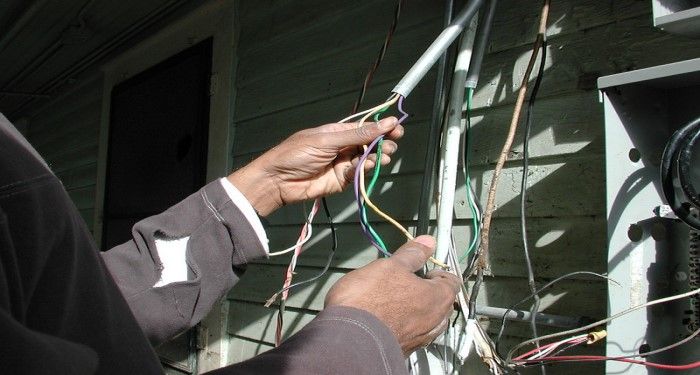
But here's the deal.
You're going to need to find a qualified electrician to perform this work.
They'll rip out the old wiring and then rewire your entire house. This process might cause damage to walls or the floor. This is necessary for them to have full access to rewire your home safely and securely.
Rewiring a house must be completed by a qualified electrician.
Anyhow, let's get down to it. How much should it cost to rewire a house in 2024?
On average, a one-bedroom flat may only cost around £2,500 to £3,500, while rewiring a two-bedroom house may cost up to £3,000.
Larger houses will usually cost more than this. A three-bedroom semi-detached homes will cost around £3,000 to £5,000 to rewire, while the cost to rewire a four-bedroom detached property could cost up to £7,000.
Rewiring Prices in 2024
| Job | Cost |
|---|---|
| 1 bedroom flat | £2,500 to £3,500 |
| 2 bedroom terrace | £3,000 to £4,000 |
| 3 bedroom semi-detached | £3,000 to £5,000 |
| 4 bedroom detached | £5,000 to £7,000 |
What are the Additional Costs of Rewiring a House?
Now:
There are various other expenses you may need to add on to your house rewire cost.
We cover these in the following subsections.
New Consumer Unit Cost
If you have a faulty consumer unit, then you will need to have it replaced by a qualified electrician.
The cost to replace a consumer unit will depend on the number of circuits you have.
Six circuit systems tend to cost around £325 to £370 to replace, while a consumer unit with twelve circuits is normally priced at £380 to £450 for supply and installation.
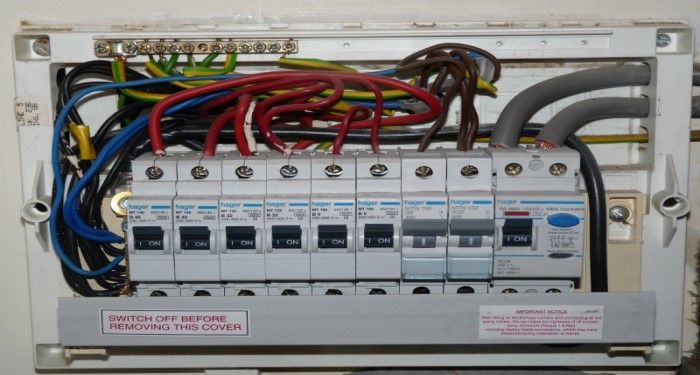
It also depends on the type of consumer unit you choose.
Here is a breakdown of the different types of consumer unit and the supply costs you can expect to pay.
Split-load Consumer Unit Cost
A split-load consumer unit is categorised by the position of its miniature circuit breakers (MCBs). These are normally located next to the residual current device (RCD).
Split-load consumer units cost around £90 to £200.
Pros:
- It is a commonly used consumer unit providing safety
Cons:
- You may need a more complex consumer unit
Fully-loaded Consumer Unit Cost
This type of consumer unit features a full set of MCBs along with two residual current devices which enable up to 15 useable ways.
A fully-loaded consumer unit costs around £40 to £200.
Pros:
- It is is capable of a bigger load than a split load consumer unit
Cons:
- It may be more expensive
Garage Consumer Unit Cost
This type of consumer unit is smaller and normally placed in garages, sheds, or extensions that require an additional consumer unit to the main consumer unit in your property.
On average, garage consumer units cost between £34 and £68.
Pros:
- Specifically made for garages and outbuildings that require an extra consumer unit rather than just using an extension which is dangerous
Cons:
- It is an extra expense on top of existing consumer units
Dual-Split Load Consumer Unit Cost
This type of consumer unit has two sets of circuits which are powered by two separate residual current devices. One might be used to power upstairs, while the other covers all electrical installations downstairs.
Dual-split consumer units cost around £90 to £200.
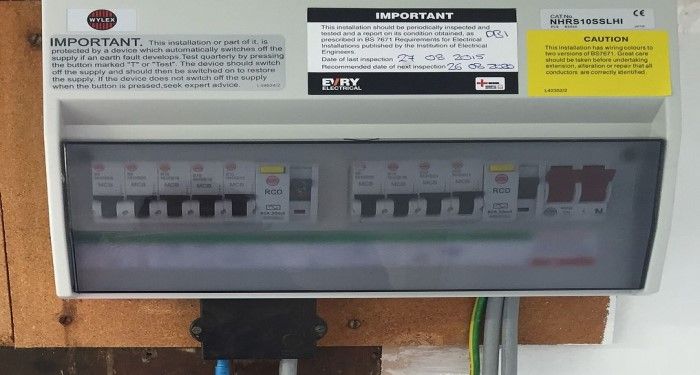
Pros:
- This type of consumer unit can be used to split your home’s power up to upstairs and downstairs
Cons:
- May be more expensive to install
Domestic Switch Fuse Cost
A domestic switch fuse is another small consumer unit which normally only has one circuit and acts as a secondary main switch when connected to the sub-mains.
The price for a domestic switch fuse ranges from £70 to £80.
Pros:
- This creates a secondary main switch
Cons:
- It usually only has one circuit
New Plug Socket Cost
Another common job when rewiring a house is replacing plug sockets which are outdated or faulty.
To help you understand the cost of plug socket replacement, here is a breakdown of the prices for different plug sockets.
Switched Socket Cost
A switched socket is one of the most common plug sockets which normally features one or two 3-way sockets with a switch to power up each socket.
A switched socket costs between £1 and £120.
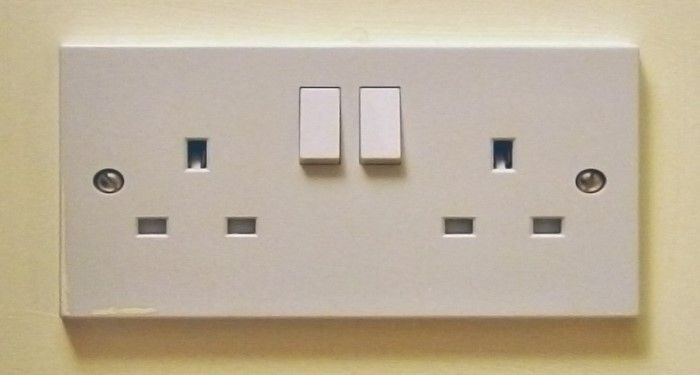
Pros:
- This is the cheapest option for replacing plug sockets
Cons:
- It is the most manual of the option available
USB Socket Cost
A USB socket is a modern plug socket which features normal plug sockets, in addition to USB outlets for charging mobile phones and small electrical gadgets.
The cost of a USB socket will usually be betweene £8 and £120.
Pros:
- A modern update which allows you to connect USB cables directly to the socket without the need of a USB plug
Cons:
- It can be more expensive than standard sockets
Smart Socket Cost
This is just like a normal plug socket, but it can be controlled from your smartphone, tablet, or computer.
The cost of a smart plug socket ranges from £20 to £190.
Pros:
- This type of socket can be controlled from your smartphone, tablet or computer
Cons:
- These are usually the most expensive sockets
Wire Relocation Cost
When rewiring a house, you may need to have a light switch or plug socket moved to accommodate the new wiring that's being added.
A professional electrician usually charges around £200 to £550 to relocate a light switch or plug socket.
Pros:
- This type of work allows you to have your light switch or plug socket where you want it
Cons:
- It can be costly to relocate the switches or sockets
New Light Switch Cost
While you're having your home rewired, it's the perfect time to have additional light switches installed and connected.
The best part?
On average, the price of adding a new light switch is quite cheap - between £30 to £60.
Pros:
- It allows you to have extra light switches fitted to make life easier
Cons:
- It is an extra cost involved
How Much Do Electricians Charge to Rewire a House?
Here's the thing.
The cost to rewire a house will depend heavily on the labour costs charged by a qualified electrician.
Work must be completed by a qualified electrician to ensure that it is safe and compliant with building regulations.
So how much does an electrician charge?
Electricians usually charge between £200 to £250 per day, so the final labour cost will depend on the size of the house.
This means that the cost of rewiring a one-bedroom flat should be around around £600 to £750, while they will charge around £600 to £1000 for a two-bedroom terraced house.
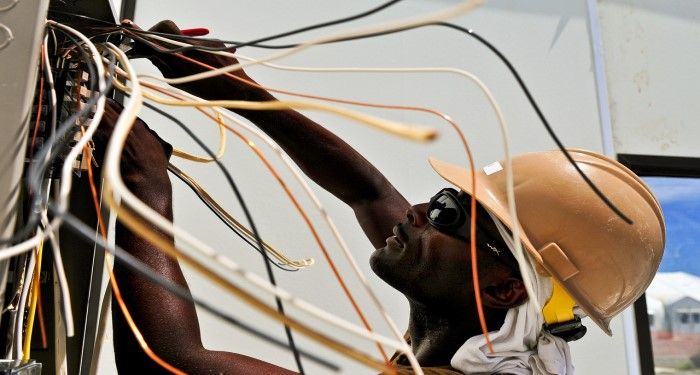
To rewire a three-bedroom semi-detached home, an electrician will offer you a quote at around £1000 to £1750, while a four-bedroom detached home could cost £1750 or more.
Unfortunately, you might need to pay even more than this.
Here's why:
- You may need to hire a carpet fitter to relay your carpet if the floor has been lifted up to rip out the old wiring underneath. This will cost around £100 per day.
- If any walls have been damaged when removing and installing wiring, then you may need to hire a plasterer who will charge around £75 to £125 to patch a wall, while it will cost up to £150 to re-plaster a wall.
- You will also have to pay a painter and decorator to paint or wallpaper your walls - which will cost around £150 to £200 per day.
How Long Does It Take to Rewire a House?
Now:
Rewiring a house can be quite an extensive job and take a lot of time. But again, the duration will depend on the type and size of your home and the condition of your wiring.
If the wiring is in a significantly bad condition, then more safety measures will need to be put in place to protect the electrician from harming themselves when removing the wiring.
But on average?
The time frame to rewire a one-bedroom flat is around 4 days, while a two-bedroom terraced house could take up to 5 days to complete.
Larger homes such as a three-bedroom semi-detached property usually take around 6 to 7 days to rewire, while a four-bedroom detached could range from 7 to 9 days.
FAQs
Q: How disruptive is rewiring a house?
A: House rewiring is quite an extensive job which can take up to 10 days to complete - but this will depend on the size of your home.
In short, it can create quite a mess! It might involve lifting up floorboards or carpet, removing wallpaper, and ripping out light fixtures to remove old wiring.
While your house is being rewired, an electrician will also need to ensure that the electric mains are switched off to prevent any shock incidents. This means that you may not be able to access any electricity – so no lighting or internet!
Because of all this disruption, the majority of homeowners move out of their home while it is being rewired - as it allows the job to be finished quickly.
If this is not possible, you will need to ask your electrician if it is possible to set up a space in one room where you can keep everything you need and not be disrupted. As this means the electrician will not spend as much time in the property, the rewiring could take from a few days up to a few weeks longer than expected.
Q: How do you know if a house needs rewiring?
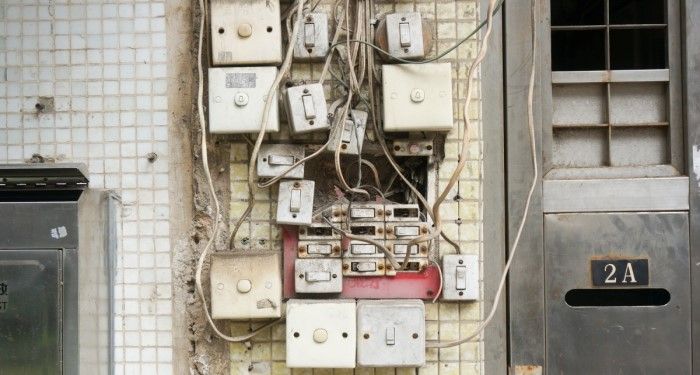
A: There are various signs that your house may need rewiring.
Common signs include: if your circuit breakers trip regularly, you experience any shocks from light switches or plug outlets, flickering or dimming lights, or noticeably damaged wiring and cables.
Q: How often does a house need rewiring?
A: House wiring usually lasts around 20 years if there are no complications with circuit breakers, sockets, light switches, or any other electrical installations.
In some cases, you may not need new wiring for up to 40 years. However, cable insulation will eventually begin to wear down - which will start to affect all electrical devices in your home.
This will cause you to use more electricity, leading to higher energy bills - while also making your home unsafe.
Q: Can you rewire a house yourself?
A: It is possible to rewire your house yourself if you are on a budget. However, you must have all the electrical work checked by a qualified electrician who is listed under the competent persons scheme.
This will enable the work to be approved under Part P building regulations to be deemed safe and compliant.
If you have no previous experience working with wiring or electrical installations, then you should avoid doing the job yourself. It can be very dangerous and more expensive in the long run if you make a mistake.
Q: What does a house rewire involve?
A: There are two stages involved in house rewiring.
The first fix stage is where the old wiring is removed and replaced with new wiring that is safe and compliant.
The second fix stage involves connecting everything up to the mains and making it live.
Once everything is installed, a qualified electrician will then conduct checks on all electrical installations to ensure that they are safe.
Once everything is deemed compliant, they will issue an electrical safety certificate to the homeowner to confirm that the work is safe.




